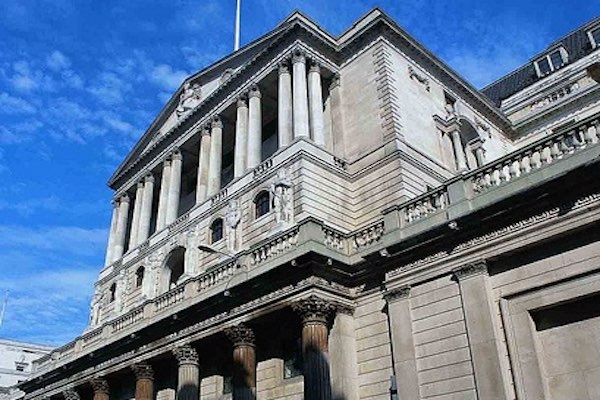The Bank of England has increased its base rate from 0.25% to 0.5% today as it looks to battle rising inflation.
The rise in CPI inflation to 5.4% has put more pressure on the bank to keep inflation under control.
Inflation is well above the Bank's 2% target for CPI.
The Banks' Monetary Policy Committee (MPC) voted to increase the base rate to 0.5% with immediate effect.
The committee voted 5-4 in favour of a hike to 0.5%, with those in the minority favouring a rise to 0.75%.
The Bank is maintaining its cautious strategy but has indicated that rates could rise to 1% this Spring and CPI is expected to peak at 7.25% in April, a full 2% higher than was expected in November.
The MPC voted unanimously to end new purchases under its £895bn quantitative easing programme.
The base rate rise is a second in a row for the Bank, which had previously held rates for three years, and the first time it has raised rates in two consecutive months since 2004.
The Bank of England said recently that developments have strengthened the case for some tightening of monetary policy to meet the bank’s 2% inflation target.
Scott Gallacher, a Chartered Financial Planner at Leicestershire-based Rowley Turton, has serious concerns about the move.
He said: "The Bank of England is not looking at the wider picture. The economic theory is that, with high inflation, you increase interest rates to reduce consumer spending and control inflation. However, with soaring energy prices and the cost of living crisis, does anyone really think we need to dampen consumer spending?
"Higher energy bills will mean that many people will have to make cut backs in other areas anyway."
While base rates have risen, Sarah Coles, senior personal finance analyst, at Hargreaves Lansdown thinks little will be passed on to savers in the form of higher rates.
She said: "As the Bank of England raises rates to 0.5%, mortgage borrowers risk getting burned by the intense heat of rate rises in the mortgage market. Savers, meanwhile, may struggle to notice the lukewarm efforts of savings providers."
Daniel Casali, chief investment strategist at Tilney Smith & Williamson, said that while inflation may cool later this year, base rates were likely to hit 1.5% within a year.
He said: "According to the latest Bloomberg consensus survey of economists, annual CPI inflation is expected to peak at 5.7% in the second quarter of 2022, before steadily slowing to a 3.7% clip by the fourth quarter of 2022 and below the BOE’s 2.0% target ceiling by the second quarter of 2023.
"While the inflation outlook is expected to cool, the money markets still expect the Bank of England to raise interest rates to 1.5% in a year’s time from now. Given growth headwinds from rising energy costs and an increase in National Insurance from April, the BOE may well take a cautious approach and not raise interest rates at its next Monetary Policy Committee in March."
Martin Brown, managing partner at Financial Planner Continuum, said: “While we finally saw the base rate rise in December, today’s rise of a further 0.25% to 0.5% will likely have more of an impact on savers, pensioners and home buyers.
“Rate rises and other measures to tackle inflation mean complications for most types of Financial Planning, but particularly for anyone looking at a pension. For us, we expect to see a resurgence in the popularity of annuities. Index-linked annuities could prove a particularly popular recommendation as advisers look to offer their clients some protection against inflation which could be long-lasting."
• This is a developing story - check back later for industry reaction.

